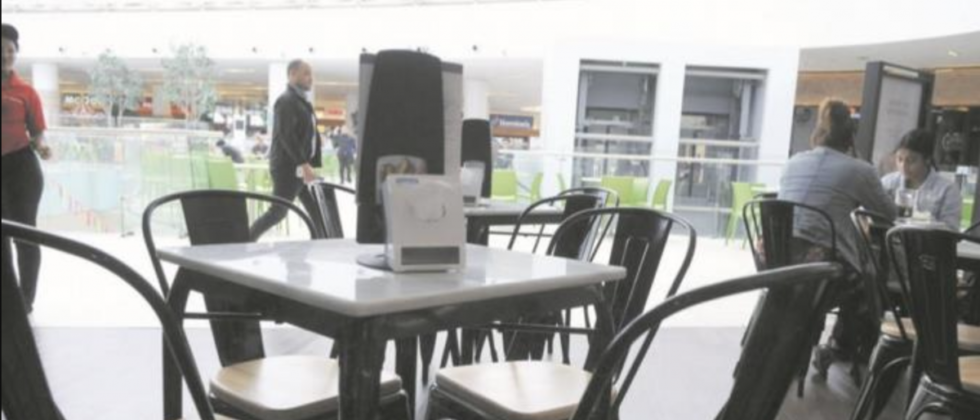news
“The dilemma of reopening”, an article by Dr. Leonel Fernández
May 18, 2020
Santo Domingo, DR – This Monday marks 60 days that the Dominican society has been living under a state of emergency. With the recent 15-day extension, the situation will continue to 74 consecutive days, culminating on the 2nd of June.
The prolonged duration of these measures of social isolation for the sake of the preservation of health have produced a significant impact in the daily life of Dominican society.
In our population, like the rest of the world, there is a persistent worry regarding the determination of when to open economic and social activities in order to eventually return to ordinary life without compromising our health.
In truth, nobody knows how long this virus will last. Recently, the executive director of the World Health Organization’s (WHO) Health Emergencies Programme, Dr. Mike Ryan, posed that this coronavirus has the possibility to turn into “…another endemic virus in our communities, and this virus may never go away.”
Dr. Ryan was posing that COVID 19 could be a virus that we will have to live with for a while, as we have done with other illnesses such as dengue, malaria, measles and HIV-AIDS.
Historically, the way we have faced the permanence of endemic viruses has been through the development of vaccines and medicines that combat the effects of these illnesses.
Presently, the good news is that through science, the RNA sequence of the virus is known. We know how to detect it (which allows the illness to be diagnosed with precision). The antibodies can be measured, and we can develop therapies that help the recovery of those affected.
These optimistic perspectives from the field of science allows us to better understand the important advances we have achieved in the battle to obtain a vaccine and medicines to face the extension of the virus’ presence in our society.
However, since we still don’t fully know when humanity will be able to produce an effective vaccine against COVID-19 despite these advances, a dilemma has been raised in how to reopen the economy without the risk of sparking another wave of infections that would put the health of the population in greater danger.
GRADUAL REOPENING
The challenges of the process of reopening can be valued when examining the experience of places like South Korea, Germany and the Chinese province of Wuhan, where there have been gradual reopening initiatives followed by an increase in the number of COVID 19 cases.
For example, in South Korea, after bars and nightlife establishments reopened, a 29-year-old man visited five establishments and infected 85 people.
In light of this, Korean authorities fear that this resurgence will be greater, so they reordered the closing of said entertainment establishments and have also monitored the health status of more than 5,517 people who visited those five venues.
In the Chinese province of Wuhan, the origin place of COVID-19, there was also a surge of infections after their reopening. The same thing occurred in Germany, when a new wave of infections followed the opening of formal labor.
Despite being a global refence in how to handle and mitigate the pandemic, the recent experience of these three places in reopening their economies and experiencing a surge of infections shows that the response to the dilemma of reopening the economy and preserving the well being of the people continues to be an enigma.
However, it is clear that the decision to reopen depends on the health status of the population; and this status can only be known after implementing a massive program of diagnostic tests of COVID-19.
An abundant application of coronavirus diagnostic tests is the only way for governments to collect information on the two main health indicators of the population’s health status, which would help determine when to allow a reopening. These indicators are the reproduction number or the R0, and the flattening of the curve.
The basic reproduction number or R0 represents the number of people who will contact a contagious disease from one infected person. In other words, it measures the virus’ capacity to spread. Generally, it is estimated that one person can infect 3 people.
The flattening of the curve is verified when there is no increase in the number of people infected or when there is a decrease of people infected within a certain time frame and in a controlled manner.
The reliable data of the flattening of the curve and the basic reproduction number/R0 are essential to proceed with reopening, due to the various risks such a process entails.
THE DOMINICAN ACHILLES HEEL
Unfortunately, in the case of the Dominican Republic, there has been a lack of understanding about the relevance of COVID-19 testing and the application of this process has been complex, difficult, and inconsistent.
After two months under a state of emergency, the impact of the pandemic on the national economy has been more than evident. This is clear in the most recent briefing of the Banco Central (Central Bank) where its reported that the national economy has stalled and there is a growth of zero in the first trimester of this year.
This deterioration of our national economy explains why the population broke confinement weeks ago and has looked for ways to return to ordinary life. It also helps to understand why various sectors of the country have urged the government to present a clear plan to gradually reopen the country.
During the 60 days of confinement, more than 800 thousand people from more than 60 thousand companies have lost their jobs, which represents the greatest fall of the labor market in our entire economic history in such a brief period of time.
This dramatic picture of our national economy makes it clear that the government should summon the manufacturing, social, religious, and political sectors to engage in a national dialogue where a smart, gradual and organized reopening plan can arise in order to avoid a resurgence of infections.
However, the Dominican government’s problem is not implementing a massive and consistent plan of tests that will allow it to obtain the information of the population’s health status.
By not having that information available, it acts in an improvised manner; and this is precisely the root of the Achilles heel in the Dominican government’s strategy in facing the COVID-19 virus and the reopening of the economy.






